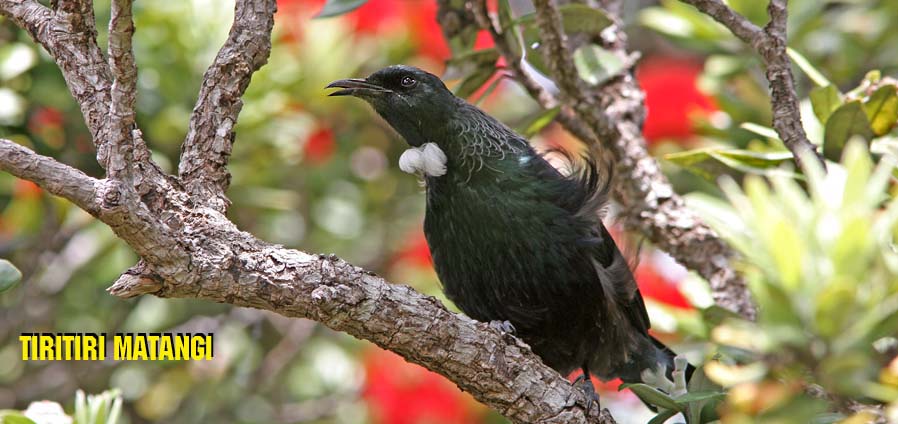
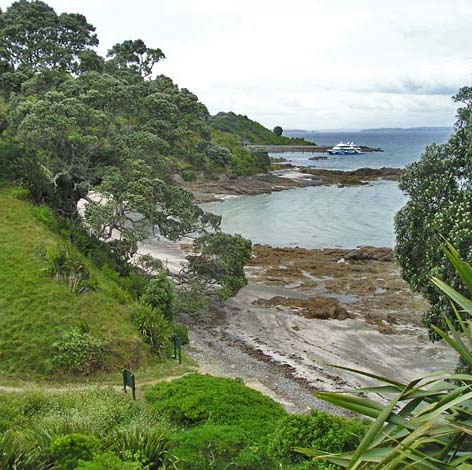 Tiritiri Matangi Island
right) lies just 2.5 miles (4 km) off the Whangaparaoa Peninsula on
North Island, but it is entirely a world apart. Once a grazed ranch, it
has been replanted with native trees and all predators have been
removed. For several decades, native birds have been re-introduced here
and it is by far the most accessible place in New Zealand to see many
of them. One takes a ferry from Gulf Harbour and is permitted about 5
hours on the island. A series of trails and boardwalks (below) allow
exploration.
Tiritiri Matangi Island
right) lies just 2.5 miles (4 km) off the Whangaparaoa Peninsula on
North Island, but it is entirely a world apart. Once a grazed ranch, it
has been replanted with native trees and all predators have been
removed. For several decades, native birds have been re-introduced here
and it is by far the most accessible place in New Zealand to see many
of them. One takes a ferry from Gulf Harbour and is permitted about 5
hours on the island. A series of trails and boardwalks (below) allow
exploration.
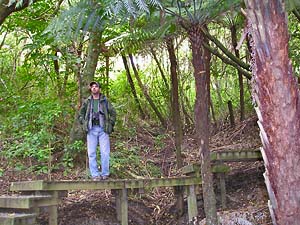
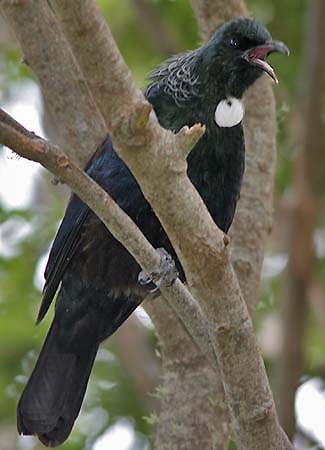 Native birdsong is constantly in the air, much of it from Tui (left and title shot, above). Tui is one of the few native birds actually doing reasonably well on the mainland. Brown Teal
(below) is rare and very local on North Island; the introduction here
provides another site for nesting (we saw chicks; see below).
Native birdsong is constantly in the air, much of it from Tui (left and title shot, above). Tui is one of the few native birds actually doing reasonably well on the mainland. Brown Teal
(below) is rare and very local on North Island; the introduction here
provides another site for nesting (we saw chicks; see below).
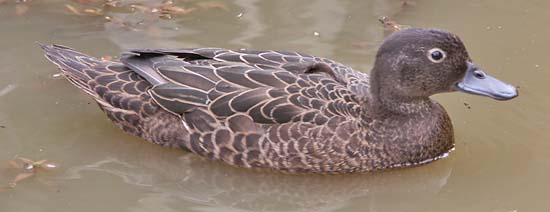
The
gallery below covers the more important primary native species on the
island. The populations here are actively studied, so many of them are
banded.
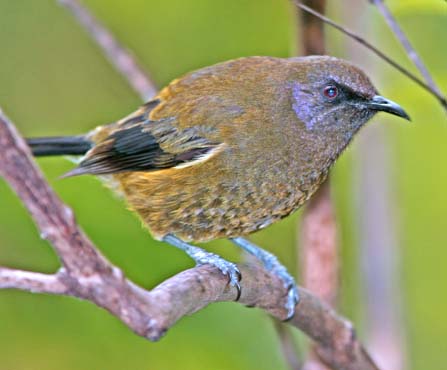 |
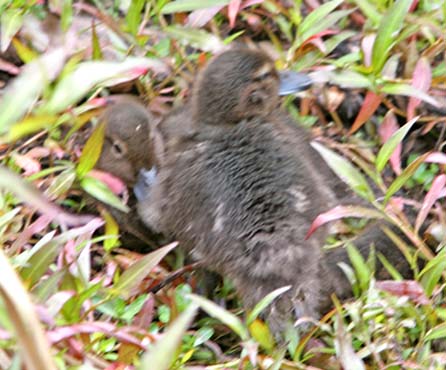 |
New Zealand Bellbird (above), an endemic honeyeater New Zealand Pigeon (below), which is also found in fair numbers on the mainland |
two chicks of Brown Teal (above), a threatened species Whitehead (below), which acts like a nuthatch but is traditionally considered a whistler, may turn out to be in an endemic N.Z. family |
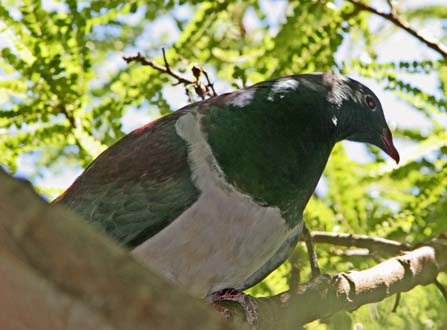 |
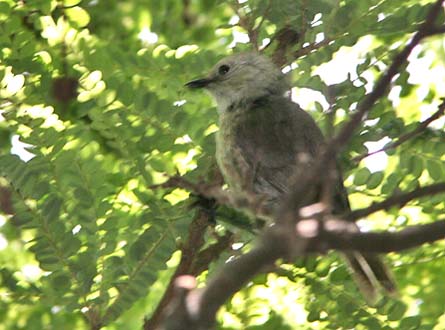 |
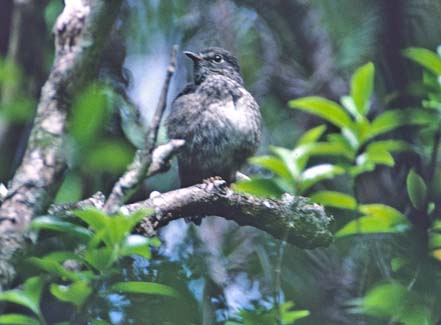 |
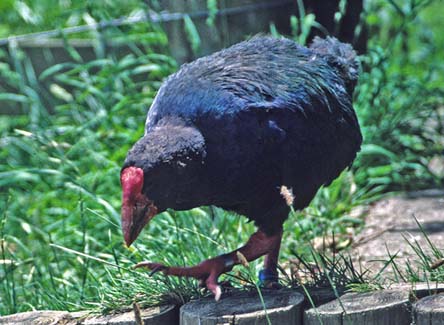 |
New Zealand Robin (above), a fledgling photo'd in Dec 1997 (a few seen also this trip) The unique Stitchbird (below), recently proved to be in its own monotypic family Notiomystidae |
Takahe (above), a huge rail that until re-introduction was critical endangered; photo'd Dec 1997 Saddleback (below), one of two extant members of the wattlebird family [Callaeidae], and feeds a lot on the ground |
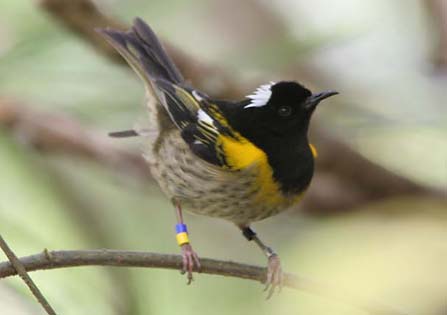 |
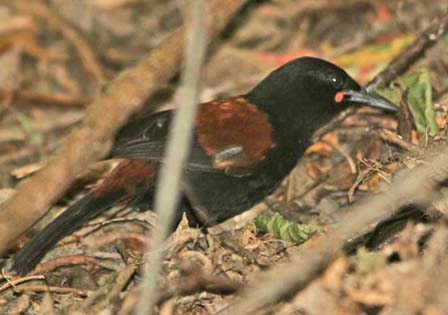 |
| And finally my two high points of this 2009 visit. Rifleman is one of two extant members of the New Zealand wrens, family Acanthisittidae. It can be found in larger mainland native forests farther south, but is just recently re-introduced here. This banded bird, a male, was carrying food to the first nest for the island (right). It is tiny — size of a kinglet! | 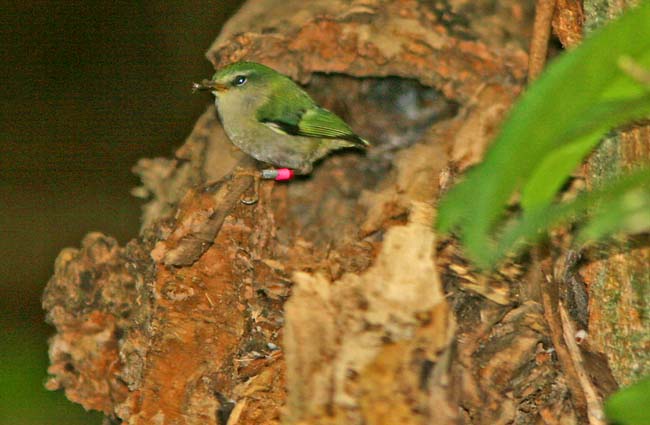 |
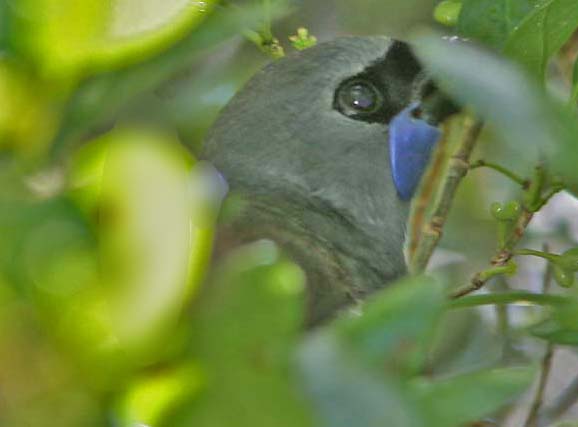 |
The large jay-sized Kokako
is one of the the great rarities in New Zealand. I've even chosen it
among the "50 best birds" of the world. It and Saddleback comprise the
extant wattlebird family Callaeidae. It exists in tiny numbers in some
large mainland forests, but the best chance to see it is on Tiritiri.
Rita and I missed it there in December 1979, which was shortly after
the initial release there. So it was my highest priority this trip, and
it took nearly 5 hours to find this one, a young male (left &
below). |
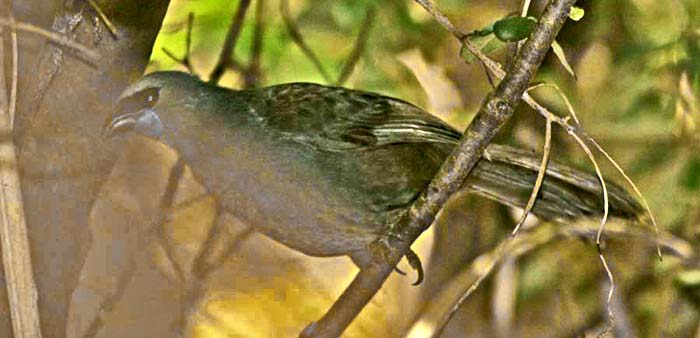
New Zealand Haurake Gulf Pelagic |
|
New Zealand Tiritiri Matangi |
|
page created 12-25 Dec 2009
|
© Don Roberson 2009 |